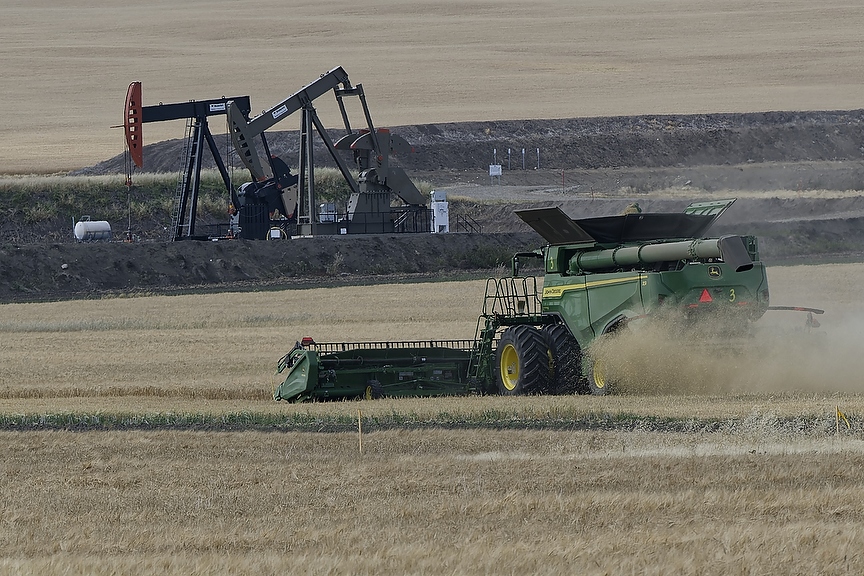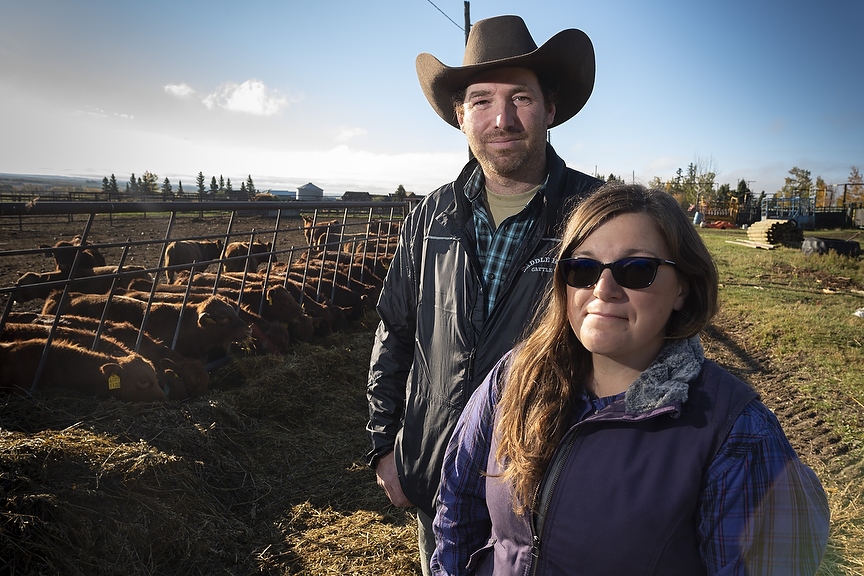
The County of Grande Prairie declared an agricultural disaster due to poor crop yields from extreme drought conditions on Aug. 22.
County Reeve Bob Marshall hopes the declaration sends the provincial and federal governments a message that local producers need help.
“It's just looking for a way to help our producers the best we can,” he said.
Warm weather in July with no moisture led to the declaration, said Marshall. He noted “a significant number of producers” have indicated that yields are well below average.
He said the county has already begun advocating to the province and says there are rumbles about programs that may become available; he said he is currently unaware of any specifics.

“We thought last year was bad, and we thought 2021 was bad, but this is worse than 2021, it's insane,” said Andrea Conrad, owner-operator of the Saddle Hills Cattle Company near Valhalla Centre with her husband Cody.
As she was bailing straw, she told the News that they are getting about a third of a bale per acre compared to about two bales an acre in a good year. Her hay is also down; where they usually make 2,000 bales, they made about 300 this year.
“Cody's dad always used to make sure the bale yard was full of straw, and we had lots of good years where it was like, why do we have all this straw laying around, and now it's like, ‘Oh, I get it’.
“Because on a bad year, you cannot make up for that straw, if you have bad hay, chances are, the straw is non-existent too, and this is what we found this year.”
Andre Harpe, a producer near Valhalla Centre and chair of the Grain Growers of Canada (GCG), said his yields are less than half of what they should be.
“We've had about three inches of rain all summer, and with very little snow, there wasn't a lot of moisture this year,” he said.
Conrad has had to move her cattle due to dry creeks and low dugouts.
She said she is riding in areas once covered in water, but now the horse’s hooves are barely muddy.
“Usually there's a creek with pretty good beaver dams, and it's bone dry,” said Conrad.
“If we don't get snow, those dugouts aren't going to fill, and some of our pastures, like the one south of home, the dugout, is the only source of water there.”
She said she thought the last good snowfall accumulation in her area was probably in 2019.
Conrad said she isn’t aware of any financial aids currently available, but will keep going since
“the love of cattle keeps us in it.”